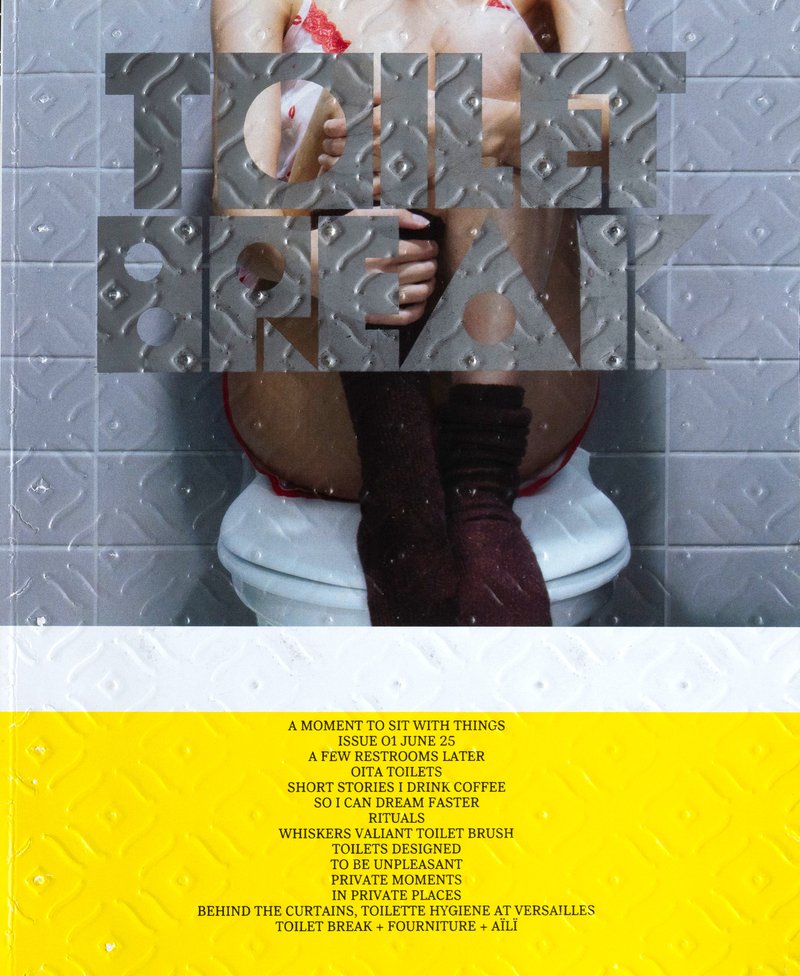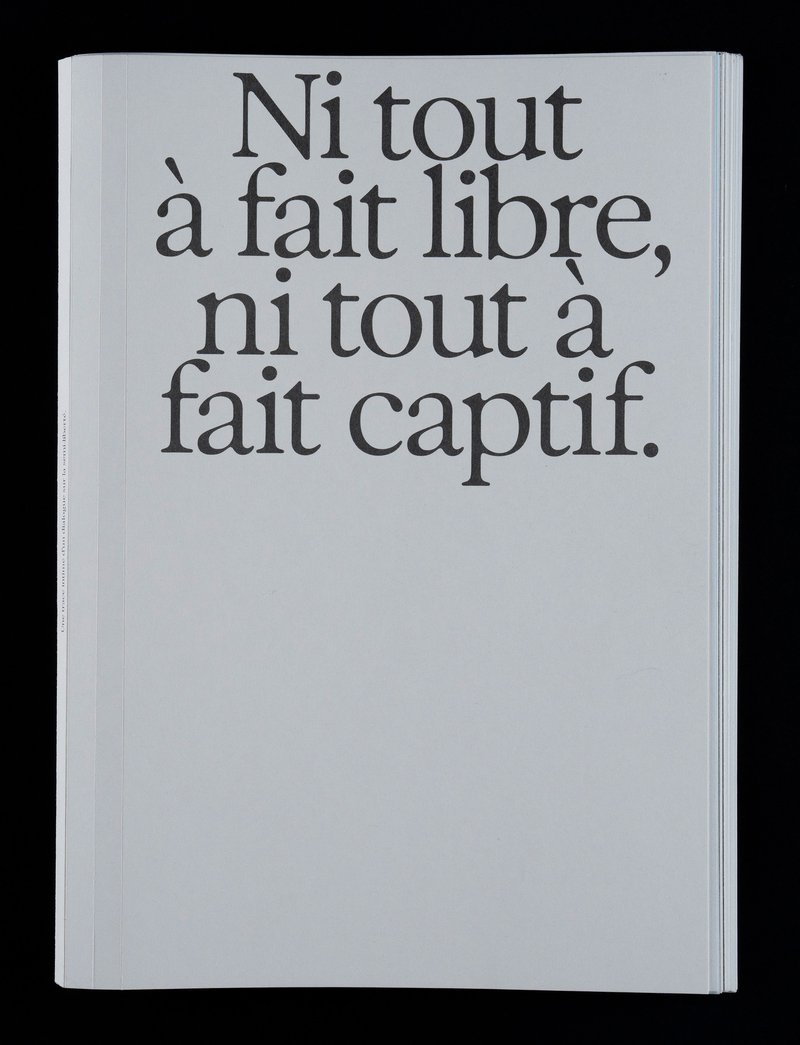
BA GRAPHIC DESIGN
Lidia Molina González – Toilet Break Magazine
by Lidia Molina González
It all started with taking a break. A pause. A moment alone in a shared space: quiet, ordinary, a little strange. Toilets might not be the first place you’d look for big ideas, but that’s why we chose them. Toilet Break uses this overlooked space to explore how we live together, take space, and connect. This first issue is about in-betweens: between public and private, inside and outside. It gathers voices from Switzerland, Belgium, Japan, across generations and practices. A place where ideas circulate freely, where serious things can be said with a wink. A collective and personal space to test new editorial forms, listen more carefully, and believe in detours as a way forward. To take, quite literally, a moment to reflect and sit with things.




